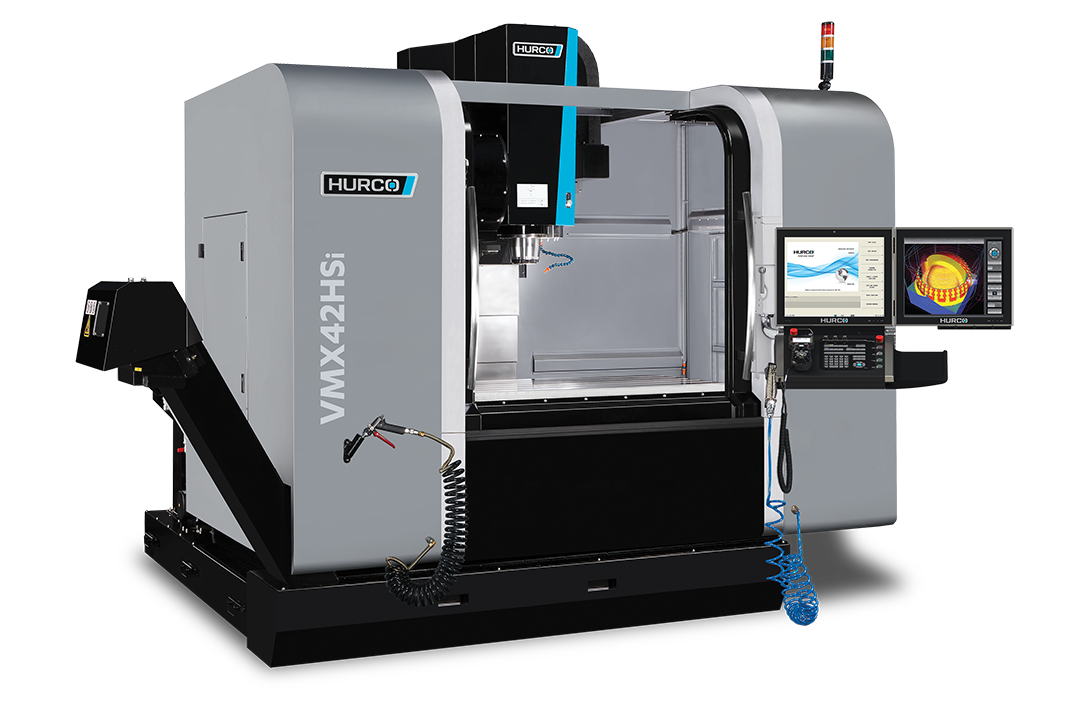Hurco Companies Stock Analysis
Analyzing HURC, a recent addition to my portfolio trading below its net-net value
Business Description
Recently, I purchased shares of Hurco Companies HURC 0.00%↑ , a company founded in 1968 and headquartered in Indianapolis. My cost basis is about $20 a share, and I believe the company’s fair value is around $29 a share. Hurco designs and manufactures CNC machines, primarily consisting vertical mills and lathes. Hurco caught my eye due to it trading below its net current asset value. With a modest market capitalization of approximately $130 million, HURC qualifies as a microcap stock. Although the company designs and manufactures its machines in Indianapolis, a significant portion of its manufacturing operations are conducted by subsidiaries in Taiwan. Over the past decade, Hurco has expanded through acquisitions and markets its machines under brands such as Hurco, Milltronics, and Takumi. Revenue breakdown reveals that machine tools contribute 83%, service parts 12%, service fees 4%, and software 1%. Demonstrating a global sales presence, Hurco garners 53% of its sales from Europe, 39% from the Americas, and 8% from the Asia Pacific region.
Cause for Undervaluation
Hurco's stock, which traded around $34 in March 2022, has since experienced a downward trend, and heavily sold off to $20 following its latest earnings release. This decline seems attributable to a softening in sales since late 2022. Quarterly reports from Q4 2022 to the present reveal year-over-year sales declines, with some quarters experiencing drops as steep as 18% compared to the previous year. For the full year 2023, sales dipped by 9% compared to the preceding year. Given Hurco's likely dependence on industrial equipment spending, it appears to operate within a cyclical market, suggesting that it may currently be in a downturn phase. My hope is that I can buy shares cheap on an assets basis now, and sell in a year or so when sales and earnings rebound.
Capital Allocation
Hurco typically allocates a few million dollars annually towards capital expenditures, constituting roughly 10% of their operating earnings. Over the past decade, the company has undertaken three acquisitions, with the largest totaling $18 million, while the other two were approximately $1.2 million and $4.4 million, respectively. These acquisitions represent about one good years worth of operating cash flow and 10% of the company’s market cap, therefore these are some pretty modest acquisitions. Since 2013, Hurco has initiated dividend payments, increasing them consistently each year; currently, the dividend represents about 20% of normalized cash from operations. Additionally, the company has engaged in share repurchases in 2020, 2022, and 2023, amounting to a total of $14 million. In summary, Hurco spends a bit on capital investments, occasionally makes small acquisitions, and returns some cash to shareholders. I think it is a bit impressive that Hurco can have decent capital allocation despite being a microcap net-net, which are often known for being pretty crappy businesses.
Valuation
I decided to purchase shares of Hurco due to its recent decline, which presented a decent discount to its net current asset value. Analyzing its most recent balance sheet, I found that Hurco holds $247M in current assets, primarily comprised of $38M in cash, $33M in receivables, and $165Mn in inventory. While it's typically preferable for net-net stocks to have a higher proportion of current assets in cash, I believe Hurco's allocation is acceptable, given the nature of CNC machines, which I don't perceive as prone to quick obsolescence or other impairment risks.
Examining liabilities, Hurco carries approximately $65M in total liabilities, with the bulk being current liabilities. Notably, the company has no long-term debt, with the largest long-term liability being $8.5M in operating lease liabilities. In my valuation of net-nets, I tend to add back the operating lease liability, as it represents a recent accounting adjustment and the rent payments are already reflected in the income statement. Subtracting the total liabilities, adjusted for the operating lease, from the current assets yields a net current asset value (NCAV) of $190 million, equivalent to $29.30 per share.
After their recent earnings release, HURC sold off to about $20 a share, which is where I bought the stock. Additionally, the other day the stock was down 6% and touched $18.80 a share.
Net-net stocks are often associated with low-quality companies facing various challenges. Despite this perception, investing in these undervalued stocks has historically shown to provide good returns over a large sample size. When evaluating such stocks, two primary red flags warrant attention: share issuance and the deterioration of current assets. In many instances, particularly with microcap stocks, constant share issuance by management can dilute existing shareholders and trigger a decline in stock price. Hurco, however, has maintained a steady share count over the past decade, earning favorable marks in this regard. Deterioration of current assets poses another risk, typically arising from significant income losses depleting cash reserves, thereby reducing NCAV. Moreover, substantial losses might drive the company to issue debt or equity, further eroding fair value. Alternatively, impairment of current assets may occur through inventory write-downs, a concern more pertinent to companies with perishable inventory such as food, or products susceptible to going out of style such as apparel.
As for positive signs, I will be looking for Hurco’s order book to begin growing leading to renewed profitability. Another positive catalyst is if the company repurchased more shares since I believe they are trading below intrinsic value.





Thanks for the great write-up.
HURC's stock has dropped further over the past year and is now trading around $15 per share.
- Price/NCAV is approximately 60% today
- Trading less than 15% above its 52-week low
- Sales/market cap ratio close to 2x
- Profitable in 8 of the last 10 years
- They reduced their inventory by about $25m, and they also reduced their total liabilities by more or less $10m.